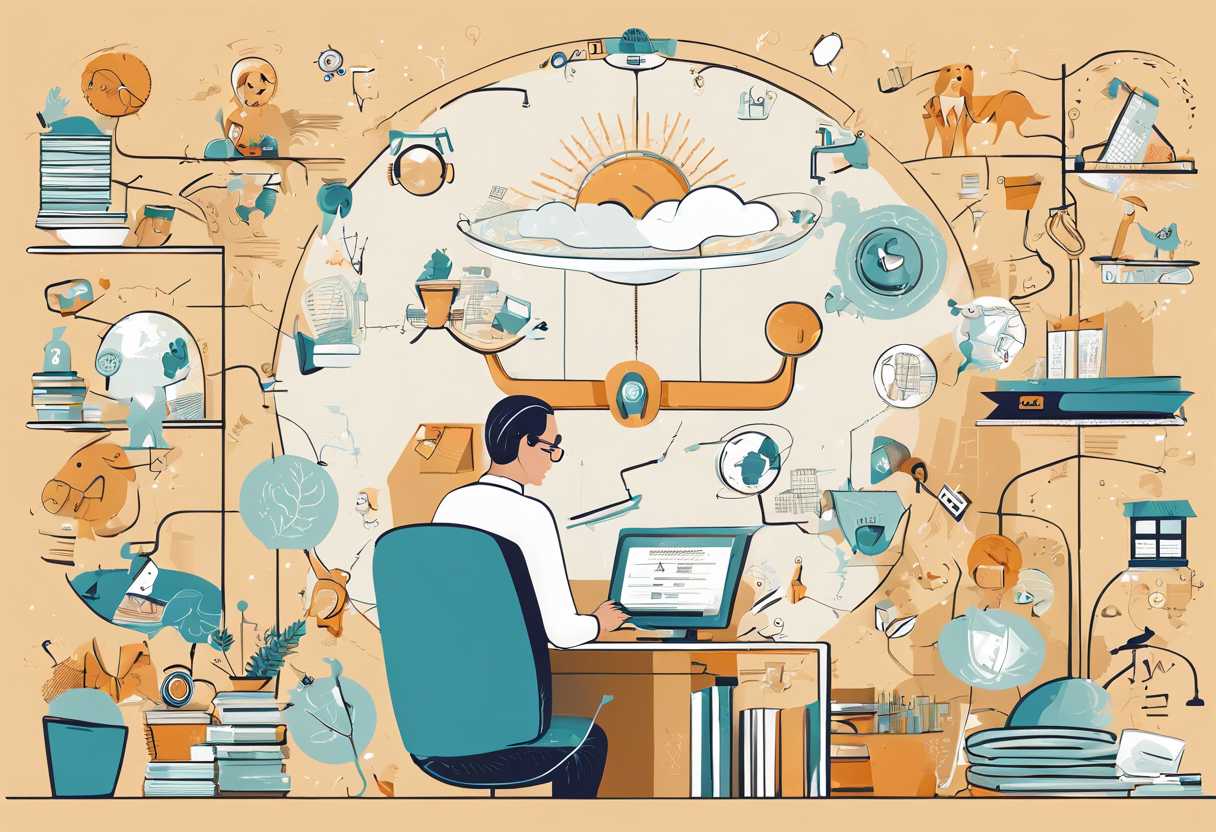In today’s competitive business landscape, customer service skills play a crucial role in determining the success of a company. The ability to effectively communicate, empathize, and problem-solve with customers can make or break a business. But the question remains: are good customer service skills learned through training and development, or are they a natural ability?
The Importance of Customer Service Skills in Today’s Business Environment
In a world where customer experience is paramount, the importance of customer service skills cannot be overstated. Businesses that prioritize exceptional customer service are more likely to retain loyal customers and attract new ones. This makes customer service skills a valuable asset for any individual or organization.
The Role of Training and Development in Enhancing Customer Service Skills
Training and development programs are designed to equip employees with the necessary skills and knowledge to excel in their roles. When it comes to customer service, these programs can provide individuals with the tools and techniques needed to effectively engage with customers and resolve issues in a professional manner.
The Impact of Natural Ability on Customer Service Excellence
While training can certainly enhance customer service skills, some individuals may possess a natural ability to connect with others and understand their needs. This innate talent can be a valuable asset in the realm of customer service, allowing individuals to excel in their roles without extensive training.
Strategies for Cultivating and Improving Customer Service Skills
For those who may not have a natural inclination towards customer service, there are strategies that can be employed to cultivate and improve these skills. This may include active listening, empathy training, and role-playing exercises to simulate real-world customer interactions.
The Future of Customer Service: Balancing Natural Ability and Learned Skills
As the business landscape continues to evolve, the future of customer service will likely involve a balance between natural ability and learned skills. While training and development programs will continue to play a crucial role, businesses may also seek out individuals with a natural talent for customer service to further enhance the customer experience.
In conclusion, the debate over whether good customer service skills are learned or a natural ability is an ongoing one. However, it is clear that a combination of both training and innate talent can contribute to exceptional customer service. In the following sections, we will delve deeper into each of these points to provide a comprehensive understanding of the topic.
The Importance of Customer Service Skills in Today’s Business Environment
Enhancing Customer Satisfaction
Customer service skills play a crucial role in enhancing customer satisfaction. When employees possess strong communication, problem-solving, and empathy skills, they can effectively address customer concerns and provide solutions in a timely and professional manner. This leads to higher levels of customer satisfaction, which in turn, can result in increased customer loyalty and positive word-of-mouth referrals.
Building Brand Reputation
Exceptional customer service skills are essential for building and maintaining a positive brand reputation. When customers have positive interactions with knowledgeable and helpful employees, they are more likely to view the brand in a favorable light. On the other hand, poor customer service experiences can quickly tarnish a brand’s reputation and lead to negative reviews and a loss of business.
Increasing Customer Retention
Customer service skills are directly linked to customer retention. By providing excellent service and addressing customer needs effectively, businesses can increase the likelihood of repeat purchases and long-term customer loyalty. This can have a significant impact on the bottom line, as it is often more cost-effective to retain existing customers than to acquire new ones.

The Role of Training and Development in Enhancing Customer Service Skills
Importance of Customer Service Skills
Customer service skills are crucial for any business as they directly impact customer satisfaction, loyalty, and retention. Employees with strong customer service skills can effectively handle customer inquiries, complaints, and feedback, leading to positive customer experiences and ultimately, business success.
Benefits of Training and Development
Training and development programs play a vital role in enhancing customer service skills among employees. These programs provide employees with the necessary knowledge, tools, and techniques to effectively communicate with customers, resolve issues, and deliver exceptional service. By investing in training and development, businesses can improve employee performance, boost morale, and ultimately, enhance the overall customer experience.
Key Components of Effective Training and Development
Effective training and development programs for customer service skills should include a combination of theoretical knowledge and practical application. This can involve role-playing exercises, case studies, and real-life scenarios to simulate customer interactions. Additionally, ongoing training and development should be provided to ensure that employees stay updated with the latest customer service trends and best practices.

The Impact of Natural Ability on Customer Service Excellence
The Role of Natural Ability in Customer Service
Customer service excellence is often attributed to the skills and training of the service representatives. However, natural ability plays a significant role in delivering exceptional customer service. Individuals with a natural ability for empathy, communication, and problem-solving are more likely to excel in customer service roles. These innate qualities allow them to connect with customers on a deeper level and understand their needs more effectively.
The Influence of Natural Ability on Customer Satisfaction
Customers are more likely to be satisfied with their interactions with customer service representatives who possess natural abilities such as empathy and active listening. These qualities enable representatives to build rapport with customers, understand their concerns, and provide personalized solutions. As a result, customers feel valued and understood, leading to higher levels of satisfaction and loyalty.
Developing Natural Abilities in Customer Service
While natural abilities are inherent, they can be further developed and honed through training and mentorship. Organizations can identify individuals with natural abilities for customer service and provide them with targeted training to enhance their skills. Additionally, creating a supportive and nurturing work environment can help employees leverage their natural abilities to deliver exceptional customer service consistently.
Strategies for Cultivating and Improving Customer Service Skills
Active Listening
One of the most important skills for customer service representatives is active listening. This means fully concentrating, understanding, responding, and remembering what is being said. To improve this skill, practice maintaining eye contact, asking clarifying questions, and summarizing the customer’s concerns before offering a solution.
Empathy and Understanding
Empathy is crucial in customer service. It involves understanding the customer’s feelings and perspectives and showing them that you care. To cultivate empathy, put yourself in the customer’s shoes, acknowledge their emotions, and respond with understanding and compassion.
Effective Communication
Clear and effective communication is essential for providing excellent customer service. This includes using positive language, being concise, and adapting your communication style to the customer’s preferences. To improve this skill, practice active voice, avoiding jargon, and using positive language.
The Future of Customer Service: Balancing Natural Ability and Learned Skills
Natural Ability vs. Learned Skills
Customer service is a crucial aspect of any business, and it requires a delicate balance between natural ability and learned skills. While some individuals may have a natural talent for empathizing with customers and resolving issues, others may need to develop these skills through training and experience. Finding the right balance between these two factors is essential for providing exceptional customer service.
The Role of Emotional Intelligence
Emotional intelligence plays a significant role in customer service. Individuals with high emotional intelligence can effectively understand and manage their own emotions, as well as those of others. This skill is essential for building rapport with customers, diffusing tense situations, and ultimately providing a positive experience. While emotional intelligence can be developed through training, individuals with a natural inclination towards empathy and understanding may have a head start in this area.
Training and Development Programs
Businesses can invest in training and development programs to enhance the customer service skills of their employees. These programs can cover a range of topics, including active listening, conflict resolution, and effective communication. By providing employees with the tools and knowledge they need to succeed in customer service roles, businesses can bridge the gap between natural ability and learned skills. Additionally, ongoing training and development can help employees continue to grow and improve in their roles.
Conclusion
As we’ve explored in this blog post, the debate over whether good customer service skills are learned or a natural ability is a complex and multifaceted one. In today’s business environment, customer service skills are more crucial than ever, and the role of training and development cannot be understated in enhancing these skills. However, the impact of natural ability on customer service excellence should not be overlooked, as it can provide a strong foundation for success in this area.
It’s clear that a combination of both learned skills and natural ability is essential for cultivating and improving customer service skills. By implementing strategies such as ongoing training, mentorship programs, and feedback mechanisms, businesses can create an environment that fosters the development of these skills in their employees.
Looking to the future, it’s important to strike a balance between natural ability and learned skills in the realm of customer service. Embracing the strengths of both aspects will be key in delivering exceptional customer experiences and staying ahead in a competitive market.
Ultimately, whether good customer service skills are learned or a natural ability, it’s evident that continuous effort and investment in this area are essential for business success. By prioritizing the development of these skills, organizations can build strong relationships with their customers and drive long-term growth.
As you reflect on the insights shared in this post, we encourage you to consider how you can leverage both learned skills and natural ability to enhance your own customer service capabilities. Whether you’re an individual looking to improve your skills or a business seeking to elevate your customer service standards, the journey to excellence begins with a commitment to ongoing learning and development.
Thank you for joining us on this exploration of the fascinating topic of customer service skills. We hope that the ideas and strategies discussed here will inspire you to take proactive steps towards achieving customer service excellence in your own endeavors.

